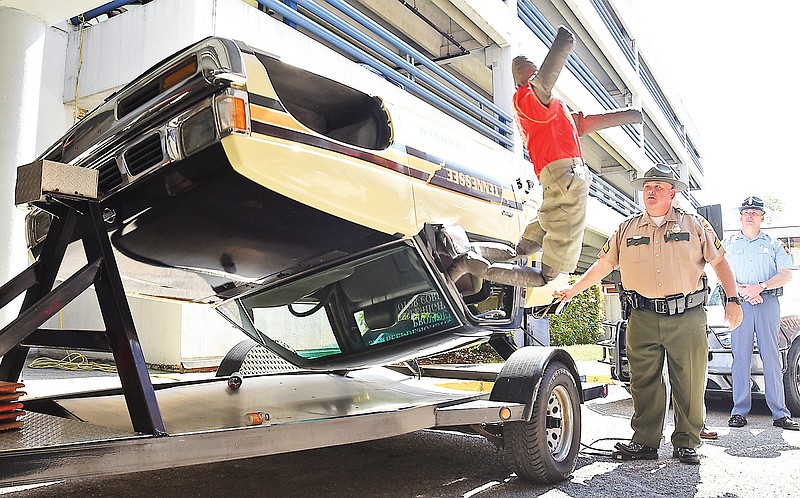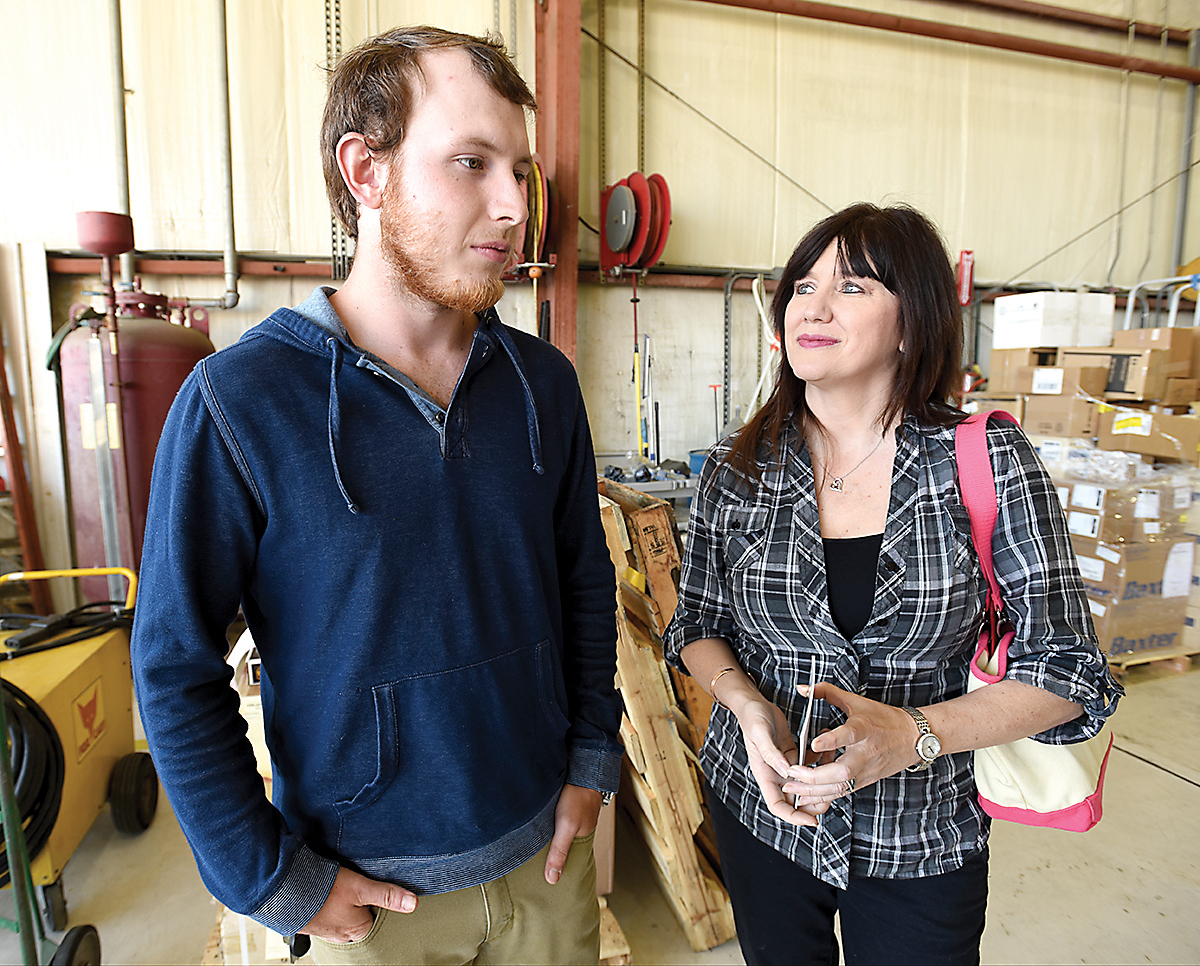The moment Leo Miller's maroon SUV slammed into a dump truck ahead of him on U.S. 27, the song "Riot" by Three Days Grace was at the 12-second mark.
Miller watched his iPod fall through the air in front of his face as the car flipped several times in mid-air. He looked up and saw the ground through the windshield.
Then the SUV landed, hard, upside down. Miller's left foot was broken. A chunk of his right ankle was gone.
But he was alive.
"My seat belt definitely saved my life," he said. "There is no way I would have lived otherwise."
Total traffic fatalities this year are up by 5 percent in North Georgia and by 3 percent in the Chattanooga area compared to this time last year. In the greater Chattanooga area, 10 people who weren't wearing seat belts have been killed in wrecks so far this year and another 86 have been injured.
So on Wednesday, Erlanger hospital doctors, Georgia and Tennessee state troopers and Life Force paramedics pleaded with the public to buckle up.
"When a motor vehicle stops, that is not the end of the injury," said Donald Barker, adult trauma surgeon. "You become a missile inside that vehicle."
About 13 percent of people still opt not to wear seat belts while in the car despite state laws requiring motorists to buckle up, according to the National Highway Traffic Safety Administration. More than half of the people killed in traffic accidents in Tennessee during 2014 weren't wearing seat belts, said Capt. Jeff Mosley.
And in the last 18 months, about 700 people have been admitted to Erlanger with injuries from car crashes. Fifteen percent of those people didn't wear their seat belts, Barker said.
Many of those injuries could have been avoided if the patients had buckled in, he said.
"When the lap belt and shoulder belt are used correctly, the occurrence of critical injuries and death is reduced by 40 to 50 percent," he said. "It's a significant reduction. It's a simple thing to do."
Miller was 16 years old and had only been licensed for about three months when he hit the dump truck and rolled over on Dec. 1, 2011.
He had nightmares for a while, and his first time back behind the driver's wheel was terrifying.
Even though it's been three years since the crash, the experience still impacts him every time he gets in his car.
"I'm a lot more cautious of other drivers," he said. "I pay more attention to other cars."
And he always buckles his seat belt.
Contact staff writer Shelly Bradbury at 423-757-6525 or sbradbury@timesfreepress.com with tips or story ideas.

